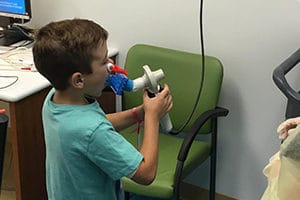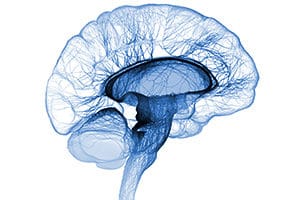It is not uncommon for a person’s hearing health to be affected by other medical conditions and vice versa. This is considered a comorbidity condition. Comorbidity conditions are the simultaneous presence of two chronic diseases or the presence of one or more additional disorders occurring simultaneously with a primary disorder. Continue reading to learn more about hearing loss comorbidity conditions.
Hearing Loss & AUTISM

Research suggest that children with Autism Spectrum Disorders (ASD) are more likely than non-autistic children to have an Auditory Processing Disorder, which makes it harder for them to discern and organize sounds.
Tinnitus and hyperacusis in children: clinic reports and basic research, 2012, Journal of Otology
Hearing Loss & ANEMIA

In a retrospective study of more than 300 thousand adults ages 21 through 90, iron deficiency anemia (IDA) was associated with sensorineural hearing loss and combined hearing loss. Patients with IDA were 2.41 times more likely to have combined hearing loss.
Association of Iron Deficiency Anemia With Hearing Loss in US Adults, 2016, JAMA Otolaryngology-Head & Neck Surgery
Hearing Loss & CARDIOVASCULAR

Research indicates that poor cardiovascular health affects both the peripheral and central auditory system. The correlation is strong enough to prompt doctors to recommend cardiovascular screening for all patients with low-frequency hearing loss.
Does cardiovascular health mediate hearing ability?, 1994, Medicine & Science in Sports & Exercise
Hearing loss & CHEMOTHERAPY

Research strongly suggest platinum-based chemotherapy drugs may cause hearing loss. 10-29% of patients treated with chemotherapy drugs reportedly suffered hearing loss.
Ototoxicity caused by cisplatin is ameliorated by melatonin and other antioxidants., 2000, Journal of Pineal Research
Free radicals and hearing. Cause, consequence, and criteria., 1999, Annals of New York Academy of Sciences
Hearing Loss & CHRONIC KIDNEY DISEASE (CDK)

Research indicates that 54% of patients with moderate chronic kidney disease (CDK) report hearing loss compared to 28% with no kidney problems.
The Association Between Reduced GFR and Hearing Loss: A Cross-sectional Population-Based Study, 2010, American Journal of Kidney Disease
Hearing Loss & COGNITIVE DECLINE/DEMENTIA

Research shows that hearing loss leads to cognitive decline, increasing the risk of dementia in the elderly.
Self-Reported Hearing Loss, Hearing Aids, and Cognitive Decline in Elderly Adults: A 25-Year Study, 2015, The American Geriatrics Society
Hearing loss & CYSTIC FIBROSIS

Recent studies show that 21% of all patients with cystic fibrosis suffer from sensorineural hearing loss, in which more than 70% of those patients had hearing loss in both ears.
Risk Factors for Hearing Loss in Patients with Cystic Fibrosis., 2016 Journal of the American Academy of Audiology
Hearing Loss & DIABETES

Patients with diabetes are twice as likely to suffer from hearing loss, possibly because high glucose levels, a telltale sign of diabetes, can damage the blood vessels in the inner ear.
Diabetes and Hearing Impairment in the United States: Audiometric Evidence from the National Health and Nutrition Examination Survey 1999 to 2004, 2008, Annals of Internal Medicine
Hearing Loss & DEPRESSION

Multiple studies have shown a strong link between untreated hearing loss and depression. 30% of patients with severe hearing loss who do not wear hearing aids report depression, compared with 22% of hearing aid users.
The Consequences of Untreated Hearing Loss in Older Persons, 1999, The National Council on the Aging
Hearing Loss & HEARING AIDS AND QUALITY OF LIFE

Patients who treat their loss with amplification devices report improvements in a number of key areas including relationships at home (60%), feelings about self (57%), mental health (44%), self-confidence (35%), sense of independence (31%) and sense of safety (30%).
Quantifying the Obvious: The Impact of Hearing Instruments on Quality of Life, 2000, The Hearing Review
Hearing Loss & HYPERTENSION/STRESS

Patients suffering from hypertension also have an increased risk of developing hearing loss and/or tinnitus.
Effects of Hypertension on Hearing, 2013, Indian Journal of Otolaryngology and Head & Neck Surgery
Hearing Loss & FALLS/HOSPITALIZATIONS

Individuals with mild hearing loss at 25 decibels are three times as likely to experience a fall; that risk increases 1.4 times for each additional 10 decibels of hearing loss.
Hearing loss and falls among older adults in the United States, 2012, Archives of Internal Medicine
Hearing Loss & OBESITY

Research shows a sizeable correlation between obesity (defined as a Body Mass Index of 30 or higher) and hearing loss. Obese individuals are 27% more likely to develop hearing impairment.
Body Mass Index, Waist Circumference, Physical Activity, and Risk of Hearing Loss in Women, 2013, The American Journal of Medicine
Hearing Loss & SLEEP APNEA

A large-scale study showed patients with sleep apnea had a 31% increase in high frequency hearing loss and a 90% increase in low frequency hearing loss.
Sleep Apnea Linked to Sudden Hearing Loss, 2012, The Hearing Journal
Hearing Loss & SPEECH RECOGNITION/BRAIN SHRINKAGE

Hearing loss has been shown to contribute to brain tissue loss, negatively affecting a patient’s ability to process sound and speech.
Hearing loss and cognition in the Baltimore Longitudinal Study of Aging, 2011, Neuropsychology
Hearing Loss & SMOKING

Smokers are 15.1% more likely to develop hearing loss than passive smokers and non-smokers, while passive smokers were 28% more likely to develop hearing loss than non-smokers.
Cigarette Smoking, Passive Smoking, Alcohol Consumption, and Hearing Loss, 2014, Journal of the Association for Research in Otolaryngology
